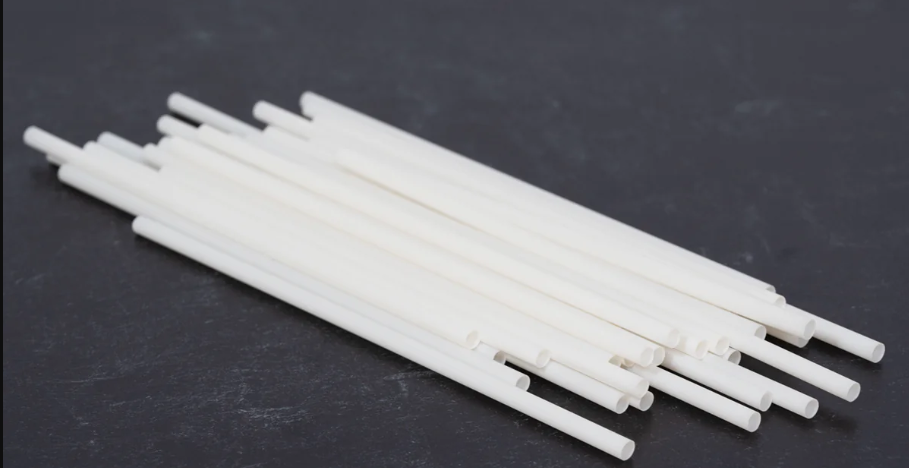

Understanding Biodegradability: The Journey from Compostable Drinkware to Rich Soil
The environmental impact of single-use plastics has become a major global concern in recent years, leading to growing interest in sustainable alternatives for the foodservice industry. One such solution lies in the use of compostable drinkware, a more eco-friendly choice compared to traditional disposables. Compostable drinkware is designed to break down naturally over time through a process called biodegradation.
But what exactly is biodegradation, and how does it contribute to our quest for a cleaner, greener planet? In this article, we will delve into the science behind biodegradability, specifically focusing on compostable drinkware, and explore how adopting these products can help restaurants and bars become more environmentally responsible.
Biodegradation is the natural process that occurs when organic materials are broken down by microorganisms, such as bacteria and fungi, into simpler compounds that can be absorbed by the environment. Compostable drinkware, in particular, is crafted from materials like polylactic acid (PLA) or polyhydroxyalkanoate (PHA), which are designed to decompose within a specific timeframe under appropriate conditions. The end result is the transformation of these materials into nutrient-rich compost, which can then be repurposed as a natural fertilizer for plants, gardens, and agriculture.
For businesses in the foodservice industry, adopting compostable drinkware offers a significant step toward reducing the reliance on single-use plastics, which are known to pollute our environment and harm marine ecosystems. By providing a sustainable solution that can naturally decompose into compost, compostable drinkware eliminates the need for petroleum-based materials and reduces the overall environmental impact of waste generated by restaurants, bars, and other establishments in the industry.
Furthermore, the use of compostable drinkware demonstrates a commitment to eco-conscious practices, which can help businesses attract environmentally aware customers and stay ahead in a competitive market.
As we explore the potential of compostable drinkware and the power of biodegradability, we invite you to join us on this journey of adopting sustainable practices to help protect our environment for future generations. Read on to learn more about the science behind the biodegradation process and discover the benefits of choosing compostable drinkware for your restaurant or bar.
The Process of Biodegradation
To truly understand the benefits of compostable drinkware, it is essential to become familiar with the process of biodegradation. Biodegradation occurs when microorganisms, such as bacteria and fungi, break down organic materials into their simpler components. Water, carbon dioxide, and methane are some of the common byproducts of this process. The rate at which biodegradation occurs depends on several factors, including the nature of the material, temperature, humidity, and presence of oxygen.
In an aerobic environment (with oxygen), microorganisms decompose organic matter into carbon dioxide, water, and biomass. This process is relatively quick and efficient, making it a preferred method for composting organic waste.
On the other hand, biodegradation in an anaerobic environment (without oxygen) is a slower process. Here, microorganisms decompose organic matter into methane, carbon dioxide, and biomass. This process is often used in landfills and wastewater treatment plants.
While both processes help reduce waste, they also have distinct environmental impacts. Aerobic biodegradation does not produce harmful gases, while anaerobic biodegradation produces methane, a potent greenhouse gas. This highlights the importance of managing organic waste properly to minimize its environmental impact.
Compostable drinkware, such as compostable straws and cups, is specifically designed to degrade under the right conditions, eventually transforming into nutrient-rich compost. This compost can then be used as a natural fertilizer, contributing to the growth of plants and reducing the need for synthetic fertilizers. The following sections will explore the role of compostable drinkware materials and how they relate to the biodegradation process.
The Role of PHA and PLA in Compostable Drinkware
- Polyhydroxyalkanoate (PHA)
PHA is a type of biodegradable polymer produced by specific bacteria through a fermentation process. PHA-based compostable drinkware is emerging as a promising alternative to PLA-based products, with some significant advantages.
The biodegradation process of PHA is versatile, as it can occur under aerobic (with oxygen) or anaerobic (without oxygen) conditions, and even in marine environments. This broader range of biodegradability makes PHA-based compostable drinkware an attractive option for food service establishments looking to make the switch to more environmentally friendly solutions.
PHA is also home-compostable and industrially compostable, and it biodegrades naturally in soil or in marine environments.
- Polylactic Acid (PLA)
PLA is another biodegradable polymer derived from renewable resources like corn and sugarcane. It has become an increasingly popular choice for the manufacturing of compostable drinkware. One significant advantage of PLA-based compostable drinkware is that it can break down under commercial composting conditions within weeks or months, depending on the specific PLA formulation used and the composting environment.
However, it is essential to note that PLA requires the presence of oxygen and the right microorganisms to fully decompose. It’s only compostable at an industrial scale.
The Benefits of Compostable Drinkware for the Foodservice Industry
Adopting compostable drinkware can lead to several advantages for businesses in the foodservice industry. Here are some key benefits to consider:
- Reduction of Single-Use Plastic Waste
By replacing disposable plastic drinkware with compostable alternatives, foodservice establishments can significantly reduce their contribution to plastic pollution. Traditional plastic drinkware often ends up in landfills, where it takes centuries to disintegrate. In contrast, compostable drinkware breaks down into natural components that aid in plant growth, fostering a more sustainable waste management approach.
- Meeting Consumer Demands
As consumer awareness about the environmental impact of single-use plastics rises, they are increasingly seeking establishments that prioritize eco-friendly practices. By incorporating compostable drinkware into daily operations, businesses can cater to these eco-conscious consumers and enhance their overall dining experience.
- Compliance with Regulatory Requirements
Many cities and countries are implementing legislation to ban single-use plastics, including straws and other disposable drinkware. By replacing these items with compostable options, foodservice establishments can comply with these regulations and establish themselves as industry leaders in promoting sustainability.
- Support for Local Economies
Many compostable drinkware materials, like PLA and PHA, can be derived from locally sourced renewable resources. By choosing such materials, businesses can support local farmers and contribute to regional economic growth.
Implementing Compostable Drinkware in Your Establishment
If the benefits of compostable drinkware align with your business values, here are some steps to help you make the switch:
- Conduct research to identify reputable suppliers of compostable drinkware that meets your sustainability goals and budget constraints.
- Educate your staff about the advantages of compostable drinkware and the requirements for proper disposal, ensuring that the materials are decomposed as intended.
- Promote your sustainability initiative through marketing, social media, and engaging in-store signage, demonstrating your commitment to reducing single-use plastic waste.
Conclusion
Embracing compostable drinkware and understanding the biodegradation process can help businesses in the foodservice industry reduce their environmental impact, attract eco-conscious consumers, and comply with regulations. By shifting towards sustainable solutions, establishments can play a vital role in protecting our planet for future generations.
At Anu Drinkware, we understand the importance of biodegradability in creating a sustainable future. That's why our compostable drinking straws are made from plant-based materials, ensuring they break down completely and safely in composting facilities. Join us on this journey towards a greener future by choosing our compostable drinking straws. Not only will you be doing your part in reducing plastic waste, but you'll also be helping to create nutrient-rich soil for plants to grow. Make the switch to Anu Drinkware's compostable drinking straws today and become a part of the solution for a more sustainable tomorrow.


